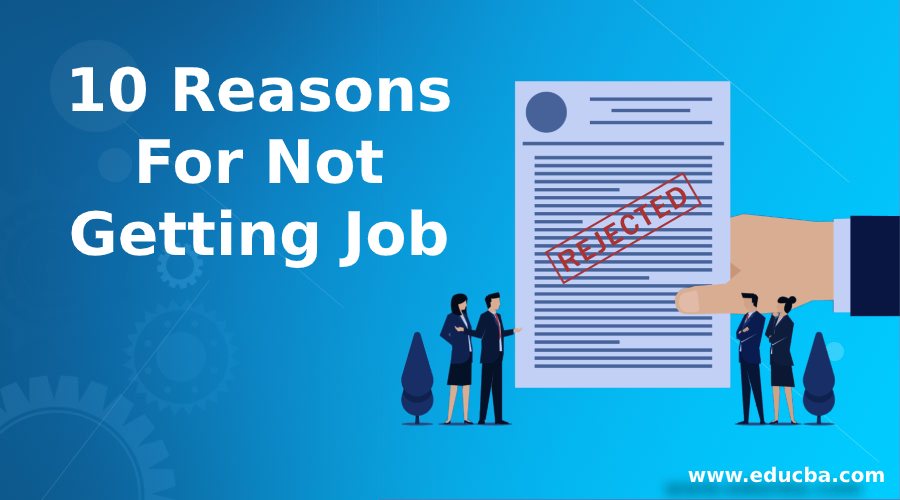Updated June 2, 2023

The days have changed. Back then, when our parents left college, they were sure they would get a job somewhere. At that time, having a hard skill or two was important. People used to complete their engineering, and it was taken for granted that they would get a job in a good company. Now what recruiters in companies look for is much more different than the previous era! They aren’t looking for only hard skill/s; rather, they need soft skill/s like communication, leadership, negotiation skill, interpersonal skill, and so on and so forth. But do you think lacking soft skill/s is the only differentiating factor in getting a job? If it’s so, then why so many people having both are not being able to crack Job Version 2.0?
Instead of giving concrete reasons, posing some interrogatives is always better. These questions will ultimately make you understand the gap between being unemployed to become employed, and you will also be able to create a bridge for yourself.
Why the most qualified individuals are not able to crack the job code?
-
What’s the difference between eye sight and mind-sight?
As described before, it’s an interrogative statement instead of a concrete reason. Once you ask yourself this question and find out the answer, you will be able to clearly say why YOU are not getting a job.
Having eyesight is very common. It’s not similar to being able to see; rather, it means when you judge things by appearances.
While mind-sight is how you perceive what you see.
Can you find the difference?
Let me tell you a story to elaborate on this.
There were two men searching for jobs. Both are in their mid-thirties and have the same background and qualifications. Both are being laid off from giant companies to reduce costs.
They both start searching for jobs. Let’s name them Mr. A and Mr. B. After investing 5 months (in study it’s shown that most people give up their job search after 5 months) into daily searching for jobs, Mr. A said that there were no jobs at all. He didn’t find any reason why he should go on searching for jobs when there were none. Thus he mustered the courage to sit at home and started complaining about his life along with all his unemployed friends.
Image source: pixabay.com
Mr. B had a different outlook. He knew that there were jobs. Even after 5 months and a ton of rejections, he kept on going. And after another month, he landed a job with great compensation and a lucrative position.
Now what’s the difference between the two?
The difference is between eye-sight and mind-sight.
One believed what he saw, and one had a different perception of the same.
Till now you have been Mr. A. Now you can be Mr. B. All you need to do is to change your mind.
-
Are you employable?
Ask yourself these questions. If you have no doubt about this, move on to the next question. But if you have a tinge of doubt also, pause and answer the following questions.
- How many books you have read in the last 3 months from your own domain?
- How many courses did you take in the last 6 months?
- Did your communication skill improve?
- Do you think that you deserve to be chosen as the best candidate among all? If not, why?
- Do you trust yourself enough?
The answer to these questions is only one – “why?”
If you go deep and find this why, you will take sincere action toward getting a job.
-
Who is responsible for getting a job?
Better to say who is not letting you get a job?
Maybe you have a huge list. The government is not coming with any update on the rules for unemployed, the taxes are very high, your spouse is not supporting you, your family is not letting you take the next step, your professors at college always discourage you, you are not very good looking, and so on.
But do you know the actual reason behind all these excuses?
You don’t want to take responsibility for your success or failure. Thus, you want to blame the whole world for it.
The father of motivation, Wayne Dyer queried – We live in the same world. For some, it’s a friendly world, and for some, it’s a hostile world! How come?
No matter what happens to you or doesn’t, it’s all your responsibility. Maybe what happened till now may not be your fault, but it’s surely your responsibility.
Don’t scream and blame the world. If you want to get a job, take responsibility and get it. No excuses are required.
-
Do you have a goal to achieve?
If you have a goal, there are chances that you may hit it, if you try.
But if you don’t have a goal, then be sure your life will be like a balloon shifting and sailing along the clouds and amid the air, and there is no destination and nothing to achieve.
Being employed may be your wish, not a goal.
If it’s a goal, then have you written it down? Have you articulated gradual action steps that you need to take to achieve the goal? Have you done anything about it?
Image source: pixabay.com
If no, take a paper and write down 4 things.
- Your goal for having employment.
- Why you would like to get employed? (The greatest reason for which you want employment. Reason may vary for different persons.)
- The deadline when you want to achieve it.
- Ten steps you need to take that will propel you toward your goal.
-
Are you always learning?
Most of us spend our life in default mode. But if you want to change your life, you can. Business philosopher Jim Rohn said it best –
“If you don’t like what you have, you can change. You’re not a tree!”
Learning is the new smart app for getting a job or being employed successfully.
It was found in the study that most adults in America spend 8 hours a day watching television.
Image source: pixabay.com
Imagine what would happen if you take 8 hours a day learning and applying knowledge in your own domain? Within few months, you would know so much that the companies wouldn’t be able to reject you because of a lack of knowledge or skills. It’s a choice. What do you want to be – a victim or a victor?
-
Do you sound too smart/over-confident?
- Have you experienced this where even after successful completion of every round, in the end, you’re getting rejected?
- Presenting all you know is a skill.
- There is a basic difference between sounding confident and sounding too boastful.
- When you are confident, you would say – I can do it. When you think of yourself more than you are, you would say – Only I can do it.
- The truth is you don’t know enough. Even if you know a lot about your domain and has expert knowledge, it’s always prudent to be humble and be ready to learn more if required.
- Before facing an interview, we always don’t know how much we should know about a subject. We do our best. We prepare. But at the end, if we present it wrongly, then it’s difficult for us to get hired.
- Humility is the key. It will open floodgates of opportunities for you.
-
Do you know about the job opening in your dream company?
It’s being seen in the study that more than 3.5 million jobs are not being advertised. So, what if you want a job and don’t know about it? With the aid of social networking or job search sites, now it’s possible to connect with people who work in your dream company. In simple terms, you need to do networking well to crack the code of a job in this 21st Century.
The best way to network is to serve the person you want help from. It’s not a sort of give-and-take relationship. By offering a valuable service to the person, you ensure that s/he can trust you and your ability to remain honest and maintain integrity with them. And guess what? That builds the relationship. And then, more than job opportunities, you eventually become good friends.
That’s how it works.
If you would like to be served, serve first. Maybe that’s why you are still unemployed or not hired by your dream company. Take the step right away. Connect with a person on a social networking site who works in your dream company and ask – how can you help him/her.
-
Why do you sell yourself short?
Do you sell yourself short? Always?
If so, it’s natural not to get selected.
The only people who get what they want are the ones who ask for it.
If you don’t value yourself, then discussing why you didn’t get a job till now is irrelevant! Here’s the idea: You are the only person who will give you the most value. And if you don’t, who else will?
Do a SWOT analysis to understand whether you are selling yourself short. Find out your strengths, weaknesses, opportunities and threats. And then envisage what you need to pay heed to and what you can use to your advantage.
Once you have a clear picture of who you are, your capacities, and areas of improvement, you will neither underemphasize nor overemphasize yourself.
Selling yourself short comes from the feeling that you are not enough to do well in the interview and are not good enough to get the job. The truth is that it’s a false belief, and you need to replace this belief with a powerful one. Affirming “I am open and worthy of all that’s coming my way” will also help to have a positive mindset about yourself.
-
Are you qualified?
Every job needs different qualifications for a person to be performed at its best. When you apply for a job, first and foremost, you should check out whether your qualifications align with what is being asked for in the opportunity. If you feel overqualified, don’t apply for the job because you deserve a better opportunity. If you see that you’re underqualified, work on improving your qualification.
Image source: pixabay.com
Qualification matters when nothing else does. Because in certain jobs, you won’t be able to perform the duties and responsibilities without the certification or the qualification!
So before applying for any job, don’t forget to check the qualification required to be able to do the job.
-
Do you have a habit of bad-mouthing others?
It’s very contagious. Once you have a habit of bad-mouthing others, it will naturally go into your professional life.
Thus, abstain from bad-mouthing your previous company when asked why you left your previous job. Rather give a curt reply like – I wanted to grow, and I felt the profile I had there was not helping me grow.
It’s a skill to speak out in front of interviewers. You need to give many, many mock interviews to be able to speak perfectly in front of the interviewers. With time you will see that whatever you need to say is coming out of your mouth without conscious effort. Practice and keep on practicing until you get ready to perform at your best in the interview.
Conclusion
The above are the 10 most significant reasons why people don’t get hired. But they are not the only ones. There are many more. But once you look at them, you will see that every other reason not mentioned here is a by-product of whatever we shared.
Eliminate these incapacities from yourself, and you will certainly get a job that you love and deserve.




